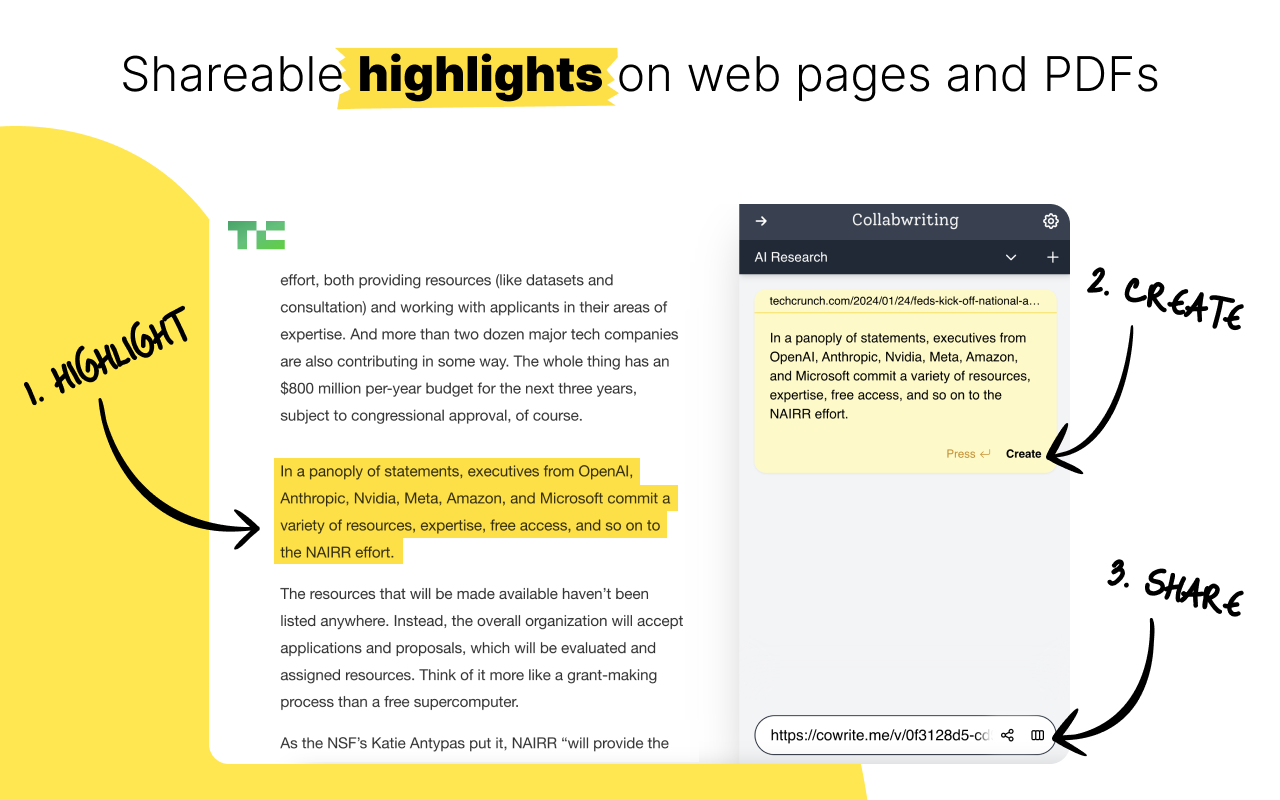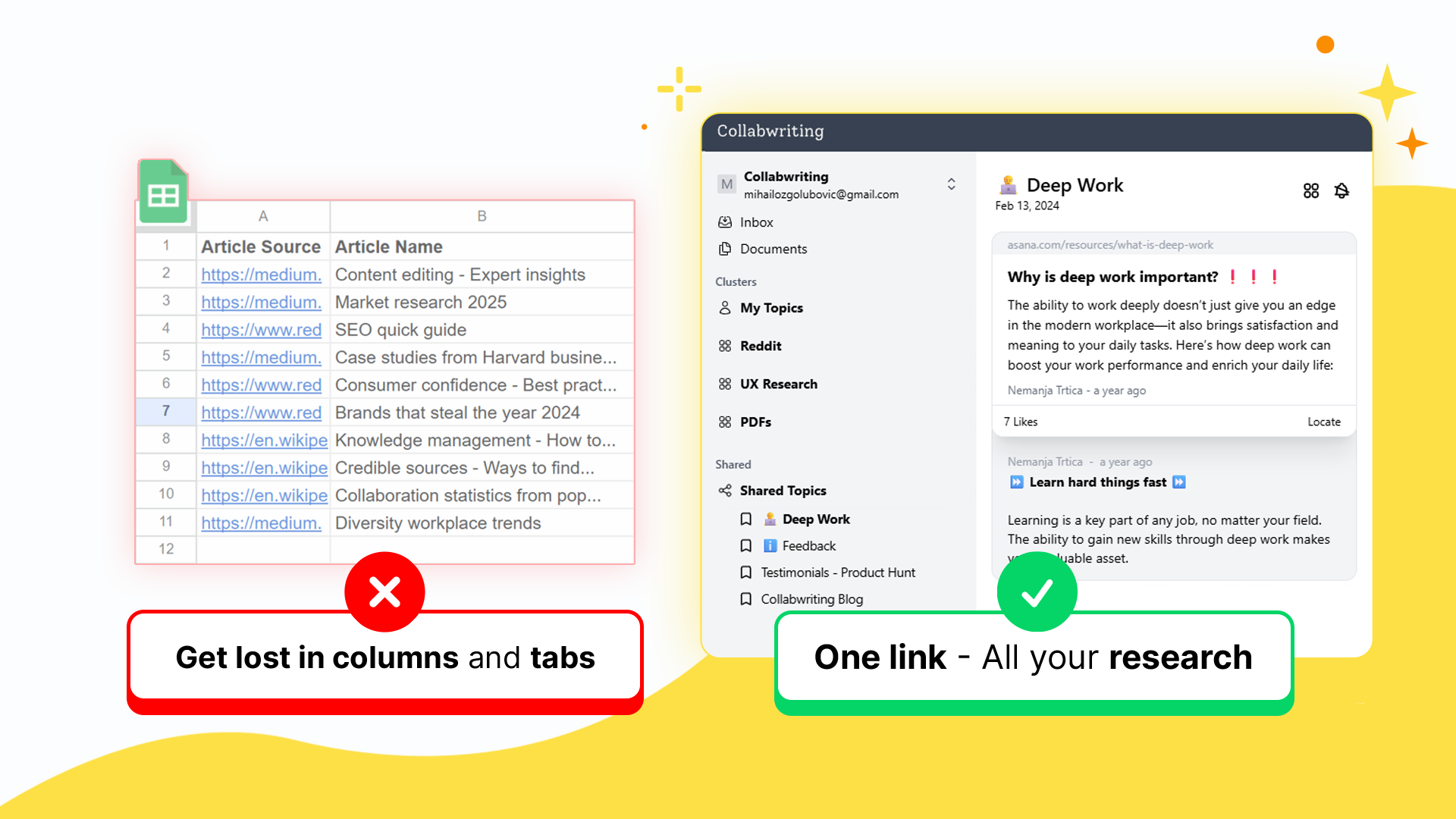As the business environment becomes increasingly complex and fast-paced, market research professionals are facing several challenges that can make their work difficult.
Research provides valuable insights into customer behavior, competitors, and market trends and should in no way be left behind.
In this blog post, we'll explore some of the top challenges market researchers face today and discuss ways to overcome them.
Lack of reliable data
One of the biggest challenges in market research is ensuring that the data you collect is both accurate and reliable.
Many companies struggle to find reliable sources of information and are unsure of the accuracy of the data they receive. Inaccurate data can lead to poor decision-making and ultimately hurt a business's bottom line.
According to a study by the Marketing Research Association, 53% of market research professionals report that data quality is their biggest concern.
To overcome this challenge, there are several ways to ensure reliability during research:
Establish a repeatable, scalable, and robust data collection process
This means embedding consistency at every phase of your research project, carefully evaluating the methods you (or your market research agency) use, and asking yourself:
“Is there a better way of doing this?”
And in most cases, there is.
Invest in a proper solution
Using a platform that combines different types of research data can help companies get a better understanding of their customers. This is called platformification.
Platformification is a plug-and-play business model that allows multiple participants to connect to it, interact with each other, and exchange value.
– Ron Shevlin, Managing Director of FinTech Research
In other words, platformification is the process of using technology platforms to improve data collection and analysis, to deliver better and faster insights. It makes it easier to see connections between different pieces of information and helps researchers make better decisions.
It also allows researchers to use modern technology to gather information quickly. And, with the right platform, anyone in a company can do research without needing special training.
For market researchers, this means they can use advanced statistical analysis tools to enhance their findings and gain more knowledge from the same amount of data. Additionally, platformification can also be used by professionals to lead teams with data-driven decision-making.
This is an exciting way for companies to do market research more efficiently. It also allows you to gain better and faster insights, make data-driven decisions, and improve the performance of teams and organizations.
Clearly define research methods, analysis, and use the right tools
Conducting research is an integral part of any business, and having a platform that offers a wide range of research methods can make all the difference. With the ability to collect and analyze both quantitative and qualitative data, you can adapt to any project needs.
But it's not just about the data itself, it's also about how you analyze it.
Using the right tools and technology can help you make sense of different types of data, including structured and unstructured data.
One great example of this is being able to capture and understand customer sentiment and engagement through open-text responses from various channels.
This can provide valuable insights that can help guide your business decisions.

Collabwriting - Shareable Notes on Web Pages and PDFs
Collabwriting allows you to gather all your online sources in one place. Just highlight, save, and collaborate with anyone on any content you find online.
Establish collaboration across the company
A collaborative research approach ensures that there is learning that happens within the organization not just outside of it.
By having a centralized platform, teams can work together efficiently and effectively. It certainly takes time and effort to build a collaborative workplace, but the payoff is well worth it.
On the one hand, researchers get access to various know-how and expertise from professionals across the organization. On the other, by fostering strong relationships with other departments, market researchers become valued advisors and strategists.
Regular check-ins throughout the project, including before, during, and after, can help track progress, identify any issues, and continuously improve the process.
This approach can also help to embed market research as an integral part of key decisions across departments.
Limited budget
Let's face it, working with a tight budget can be a real pain for market researchers. After all, to gain a deep understanding of your target market and make informed decisions, you need the right tools and resources to collect and analyze data.
But what do you do when the budget is just not there?
Well, don't throw in the towel just yet!
There are plenty of ways for market researchers to overcome this challenge and get the insights they need, without breaking the bank.
Here are a few tips to help you get started:
- Get creative with data collection: There's no need to spend a fortune on fancy survey tools or focus groups. Utilize online survey platforms that offer free plans or low-cost options, and leverage social media and online communities to gather data and insights.
- Think small: Conducting a smaller-scale study can still provide valuable insights, and it won't cost you an arm and a leg.
- Collaborate: Partnering with other organizations or academic institutions to share resources and costs can help you stretch your budget further.
- Use open-source data: There's a wealth of publicly available information that can be used for market research, so don't overlook this valuable resource.
- Be selective: It's important to be selective about research projects and focus on the most important and impactful ones that will drive business growth.
By being resourceful and utilizing cost-effective methods, market researchers can still gain valuable insights, even on a tight budget.
So don't let a limited budget hold you back from understanding your target market and making informed decisions.
According to a study by the Marketing Research Association, businesses that invest in market research see an average return on investment of 591%. Therefore, companies need to overcome these challenges to gain valuable insights and make data-driven decisions.
Facing competition
Increasing competition from other brands is a major challenge for marketers and businesses in general in 2023. To stay ahead on top of the competition and their next steps, conducting a competitive analysis is crucial.
By examining your biggest competitors' websites, social media, and search keywords, you can identify their strengths, weaknesses, and gaps in strategy.
Reviews and opinions of their users can be extremely helpful when deciding on what you should highlight in your communication as you directly see what people value most.
Use this information to create a unique selling point and innovate on what your competitors are missing.
Make sure to not copy the competition but instead stand out with new ideas and strategies.

To sum-up
Market research is a vital tool for businesses looking to stay ahead of the competition and make data-driven decisions.
By understanding your target audience, tracking your competitors, and staying on top of the latest industry trends, you can uncover valuable insights that give your brand the edge it needs to thrive.
With the right approach, and the use of modern technologies, market research in 2024 can help you uncover hidden opportunities that can revolutionize your business.
So, don't be afraid to dive deep into your research and explore new methods. The insights you uncover could be the key to unlocking your brand's true potential and taking it to new heights.
Remember, staying informed and adaptable in the market is the key to success.
FAQ
What are some of the biggest challenges faced by market researchers today?
Market researchers face several key challenges, including:
- Finding reliable data
- Working with limited budgets
- Competing with other brands
- Ensuring data accuracy
- Promoting teamwork across the company
How can market researchers ensure the data they collect is reliable?
To ensure data is reliable, researchers can:
- Develop a consistent and scalable data collection process
- Invest in a comprehensive research platform that integrates various data types
- Use modern tools and technology for accurate data analysis
- Clearly outline research methods and use the right tools for different data types
What is platformification and how does it benefit market researchers?
Platformification involves using a technology platform to streamline data collection and analysis. This approach helps researchers:
- Combine different types of research data in one place
- Make connections between different pieces of information
- Gain better insights faster
- Allow anyone in the company to conduct research easily
How can market researchers collaborate more effectively within their company?
Researchers can promote collaboration by:
- Using a centralized platform for team projects
- Regularly checking in before, during, and after research projects
- Building strong relationships with other departments to become trusted advisors
- Sharing knowledge and expertise across the organization
How can market researchers overcome budget limitations?
- Using low-cost or free online survey tools
- Leveraging social media and online communities for data
- Conducting smaller-scale studies for valuable insights
- Partnering with other organizations to share costs
- Focusing on the most impactful research projects
Why is market research important for businesses?
Market research is crucial because it provides insights into customer behavior, competitor strategies, and market trends. This information helps businesses make informed decisions, stay competitive, and uncover new opportunities for growth.





![Best Research Collaboration Tools in 2025: Zotero, Paperpile & Collabwriting [Compared]](/content/images/2025/07/image--7--1.png)







